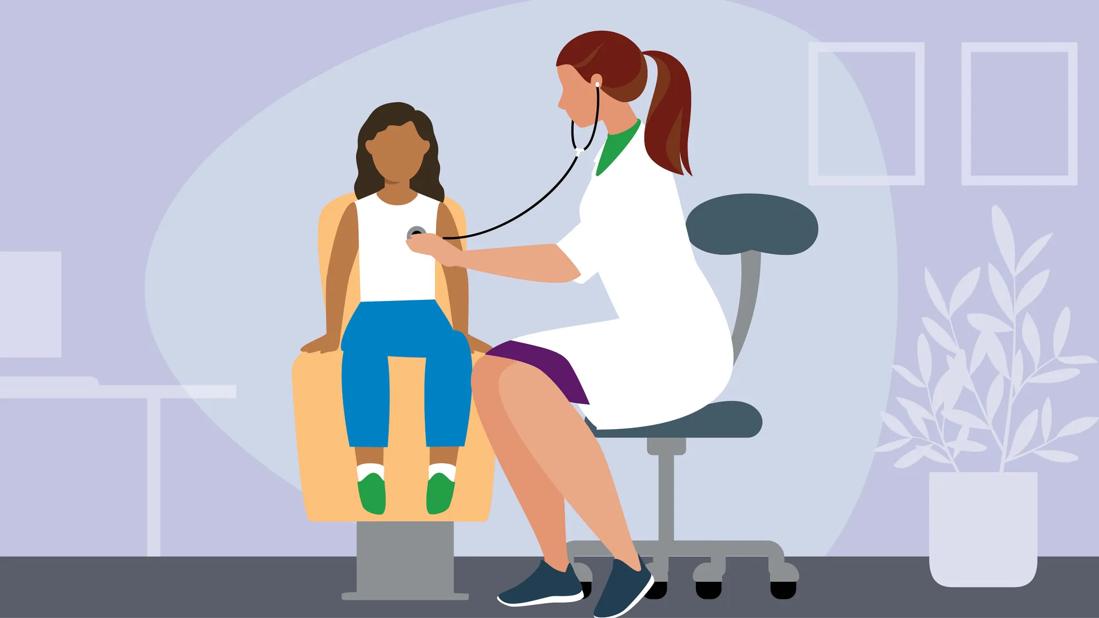The effects depend on severity, but may include infertility, heart disease and life-threatening adrenal crisis

Image content: This image is available to view online.
View image online (https://assets.clevelandclinic.org/transform/d4bae893-b8a2-4a86-a4eb-52f94a802dd4/doc-examines-child-1437904665)
Healthcare provider using stethoscope on child in exam room
Managing congenital adrenal hyperplasia (CAH) is a delicate balancing act. It can take a good deal of trial and error to dial in the right medications at the right dosages.
Advertisement
Cleveland Clinic is a non-profit academic medical center. Advertising on our site helps support our mission. We do not endorse non-Cleveland Clinic products or services. Policy
It can be a long process — but it’s an important one. Because untreated or undertreated CAH can have severe effects.
We talked with endocrinologist Pratibha Rao, MD, about the risks of untreated CAH.
The severity of CAH varies widely, and so do the effects of not treating it properly.
Some people are born with obvious signs of the condition (classic CAH) and receive treatment from day one. Others don’t see its effects until much later (nonclassic or late-onset CAH).
“In 95% of people with CAH, there’s a defect in the enzyme called 21-hydroxylase, which affects your body’s ability to make certain hormones. But that defect can vary,” Dr. Rao explains. “More severe defects are often seen from birth, whereas less severe conditions may not show up until adolescence and beyond.”
Let’s take a look at what can happen when CAH flies under the radar and goes untreated.
Kids enter puberty at different ages, and there’s a range of what’s normal. But kids with CAH that isn’t detected at birth or during childhood can have very early sexual maturation. Before entering their tween years, they may:
Women with late-onset CAH can often be misdiagnosed as having polycystic ovarian syndrome (PCOS), Dr. Rao shares. That’s because there can be a lot of overlap of symptoms between PCOS and untreated CAH.
Advertisement
“It’s very common they’ll visit a women’s health provider with concerns like insulin resistance, excess hair growth, irregular periods and acne, all of which can be consistent with PCOS,” she explains.
When PCOS treatments don’t work, or they are unable to get pregnant after trying, the next step is usually to see an endocrinologist and have hormonal testing. And often, it’s only then that they’re diagnosed with CAH.
CAH causes your body to create an abundance of the hormone ACTH, which in turn leads to buildup of androgens and can also lead to noncancerous masses in the testicles called testicular adrenal rest tumors (TARTs).
If undetected and untreated, these tumors can cause trouble with sexual function and infertility.
“That’s why we advise men with CAH to have annual ultrasounds of their scrotum to look for these tumors and get them treated early,” Dr. Rao says.
Hormone imbalances can put people with untreated CAH at a higher risk for heart disease. That includes:
“When I think about the risks of untreated CAH, increased cardiovascular risk is one of the most devastating and potentially life-threatening,” Dr. Rao stresses.
Adrenal crisis, Dr. Rao shares, is the other most dangerous risk of untreated CAH.
When you have CAH, your body doesn’t create enough of the hormone cortisol. Without enough cortisol, your body can’t respond properly to physical or emotional stress, making events like illness or injury dangerous.
So, if you have untreated or undertreated CAH, situations that call for a boost of cortisol can be very dangerous.
“In people without CAH, the body automatically increases cortisol production to deal with stress. But that doesn’t happen in people with CAH,” Dr. Rao clarifies. “That leads to adrenal crisis.”
Adrenal crisis can be an emergency situation. It can put your body into a life-threatening shock. That happens when your organs don’t get enough blood flow. It can cause seizures or a coma.
Adrenal crisis can also cause longer-lasting symptoms that affect your daily life, like:
If you’ve been diagnosed with CAH, following your treatment plan is of utmost importance. And if you suspect that you may be living with symptoms of CAH, talk with a healthcare provider about getting tested.
Living with CAH is a balancing act. It affects more than hormones — it shapes every part of your life, from how you plan your day to how you see your future. The physical toll is real, but so is the emotional weight. That’s why early diagnosis and consistent treatment matter so much.
Advertisement
For those living with CAH, proper treatment provides stability and the chance to live fully, even with a body that requires constant care.
Advertisement

Sign up for our Health Essentials emails for expert guidance on nutrition, fitness, sleep, skin care and more.
Learn more about our editorial process.
Advertisement
Proper treatment should keep your skin tone more even
Some CAH medications can cause weight gain — keep up healthy habits and talk with your care team about options
CAH starts with a missing enzyme and leads to a domino effect of hormonal impacts
CAH runs in families — you can inherit it if both of your biological parents carry the mutated gene
Hormonal imbalances can make it harder to conceive when you’re living with CAH, but treatments are available
Fans of these trendy ‘mocktails’ claim they combat stress and fatigue, but they’re not your best choice
While it’s not medically recognized that our adrenal glands can ‘tire out,’ adrenal disorders are a very real thing
Drinking alcohol is known to raise your risk of various types of cancer
Prioritize your health by managing stress, strengthening your social connections and getting quality sleep
Bolsters, blankets, pillows and blocks can offer extra support, stability and comfort
Allergies, postnasal drip, asthma or reflux could be to blame for a cough that won’t quit